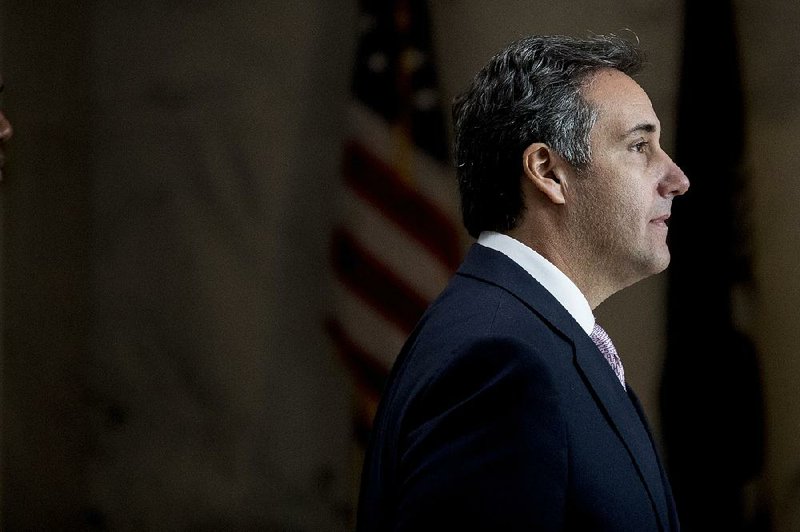WASHINGTON -- President Donald Trump's lawyer will return to Capitol Hill for a public hearing next month after the Senate Intelligence Committee abruptly canceled a closed staff interview Tuesday morning.
Committee leaders said they called off the interview after Michael Cohen sent a public opening statement to the media just as the meeting was about to start. Senate Intelligence Committee Chairman Richard Burr, R-N.C., and the panel's top Democrat, Sen. Mark Warner of Virginia, issued a sharp statement saying the panel had asked Cohen to "refrain from public comment" and that they would request that he return -- this time for a public hearing.
"We declined to move forward with today's interview and will reschedule Mr. Cohen's appearance before the committee in open session at a date in the near future," Burr and Warner said in the statement. "The committee expects witnesses in this investigation to work in good faith with the Senate."
Later in the day, the committee scheduled the public hearing for Oct. 25. Cohen's lawyer, Stephen Ryan, said Cohen had accepted the invitation.
[PRESIDENT TRUMP: Timeline, appointments, executive orders + guide to actions in first 200 days]
The Senate Intelligence Committee is one of several congressional panels investigating Russia's interference in the presidential race and potential ties to the Trump campaign. Special counsel Robert Mueller and his team of investigators are conducting their own criminal investigation.
Burr and Warner said the committee changed its rules after Trump's son-in-law, Jared Kushner, publicly released his 11-page prepared remarks to the panel ahead of his own closed interview with the panel. That interview went forward with Kushner answering questions for several hours.
Burr said the committee doesn't want witnesses to release in public what they are saying behind closed doors.
Cohen's lawyer said they issued the public statement because the meeting had been leaked to the media.
Cohen stayed in the committee's offices about an hour and a half before emerging and telling reporters that the committee had decided to postpone his interview. His interview had been expected to focus at least in part on a discussion to develop a Trump Tower in Moscow right as the presidential campaign was unfolding, a real estate deal he disclosed last month in a statement to congressional investigators.
In a prepared statement obtained by The Associated Press ahead of his appearance, Cohen said the proposal was abandoned before the first Republican primaries and was "solely a real estate deal and nothing more."
The discussions about the potential development occurred in the fall of 2015, months after Trump had declared his candidacy, and ended early last year when Cohen determined that the project was not feasible.
The Trump Organization has previously said the licensing deal "was not significantly advanced" and that no site or financing materialized during the negotiations.
Cohen also denounced allegations from a dossier produced by an opposition research firm, calling the document "lie-filled" and fabricated. He said he had never discussed with any member of the Russian Federation or anyone else a plan to hack into email accounts or to interfere with the election.
"Given my own proximity to the President of the United States as a candidate, let me also say that I never saw anything -- not a hint of anything -- that demonstrated his involvement in Russian interference in our election or any form of Russian collusion."
Also on Tuesday, former Utah Gov. Jon Huntsman, Trump's nominee to be U.S. ambassador to Russia, told Congress that Moscow's meddling in the 2016 presidential election led directly to the lack of trust between the two former Cold War foes.
Appearing before the Senate Foreign Relations Committee, Huntsman struck a tough tone amid heightened tensions between Washington and Moscow. The relationship has been marred in recent months by a series of expulsions of diplomats and closures of diplomatic missions.
"There is no question that the Russian government interfered in the U.S. election last year, and Moscow continues to meddle in the democratic processes of our friends and allies," said Huntsman, who also noted that Russia continues to disregard its commitments to arms control treaties.
He said he would not hesitate to remind Russian officials that they are accountable for their actions. But he also said there are areas of possible cooperation and common interest for Russia and the United States, including defusing North Korea's nuclear ambitions and missions in space.
Information for this article was contributed by Chad Day and Richard Lardner of The Associated Press.
A Section on 09/20/2017

